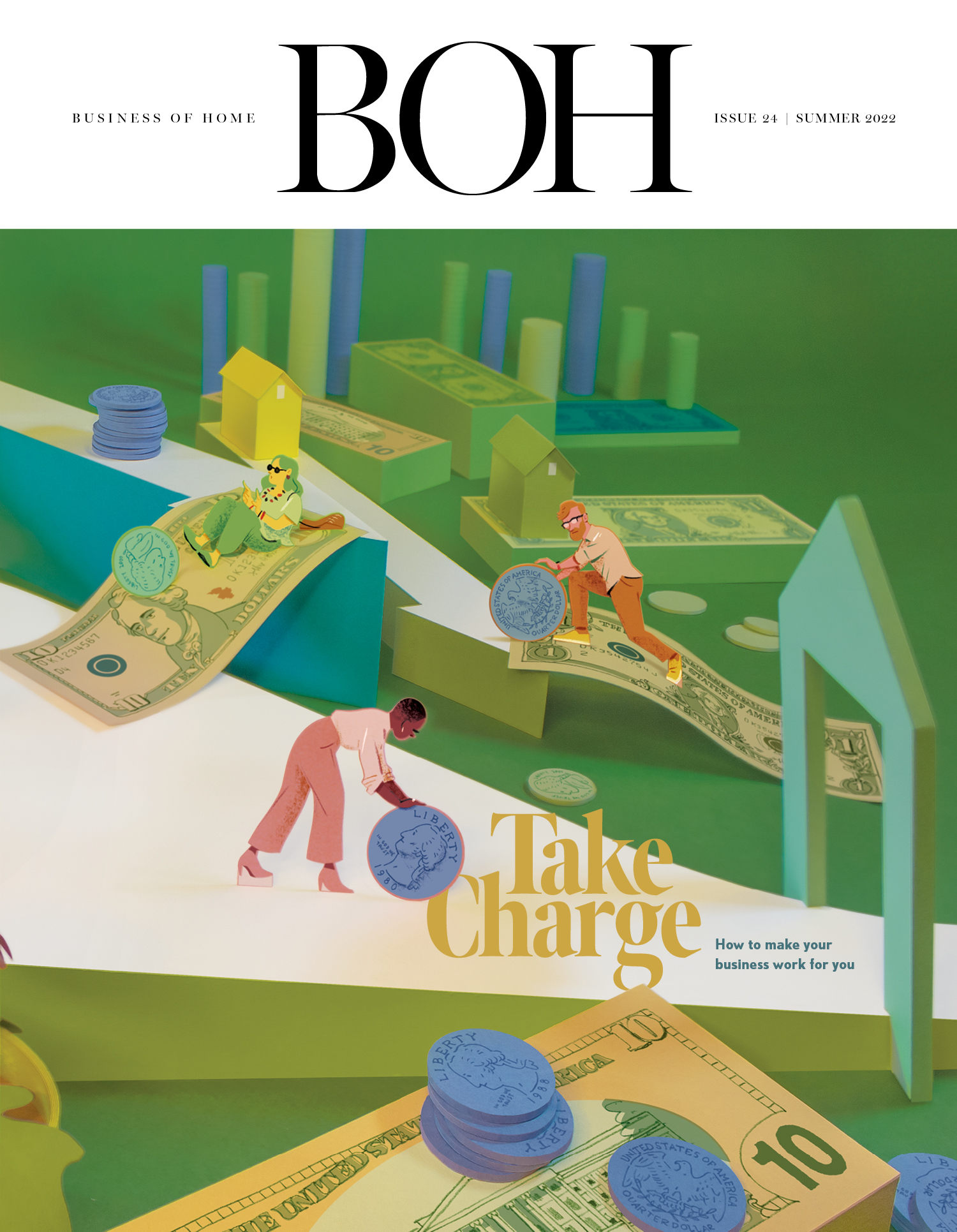Dear Sean,
I’ve recently read interviews with several designers who change up their billing depending on the client’s vibe—for example, charging hourly for clients who are clearly indecisive, or flat fees for those who seem sure of the scope and services they need. I can see the benefits of tailoring your approach, but it also seems like way too much to keep track of. What do you make of such a malleable approach?
Cost Chameleon
Dear Cost Chameleon,
A huge caveat before we dig in: What I am speaking of here is running your core design business as dependent on the client in front of you and adapting to them based on their preferences. I am not talking about other businesses that might be attached to your design business, but not your core—for instance, running a retail store or providing styling or decor services (though that ought to be the subject of another column).
On May 21, award-winning nursery and children’s room designer Naomi Coe shares her insights on creating spaces that are not just kid-proof but kid-approved. Click here to learn more and remember, workshops are free for BOH Insiders.
I firmly believe that your design business is a Slinky. The toy that stretched and twisted down the stairs is the same one that is compacted and sitting on a shelf. The only way it is not is if you bend or break a rib. If you are going to change the way you do things depending on the client in front of you, you are literally choosing to bend or break a rib each and every time, making you derivative to the opportunity, instead of the other way around.
The power of design is its idiosyncratic relationship with certainty. You have to get lost in the fog to find your path forward. It means that you have to do so with intention and purpose and, most of all, leadership. If your power lies in your ability to present ideas with incredible intelligence, emotional and otherwise, getting paid to do the exact opposite—like spending a ton of time with your client working through multiple solutions to get to the right one—makes no sense, and vice versa.
“But I can adapt my leadership style to be who my client needs me to be,” you might say. Right, and unicorns are real. You are who you are, and your firm has an identity based on the strengths I spoke of above. You will never get truly paid for being fluent at anything; only for being brilliant at the one thing. I am a firm believer in delivering the gracious no, in that you will never be brilliant at the thing you only wish to be fluent at. Oh, and make no mistake: There is absolutely a designer who is and chooses to be brilliant at your desired fluency.
At base, the notion of adapting to client needs rather than respecting yours first is a very slick way of seeing the world as finite. If there is not enough work when limiting yourself to pricing and acting in a way that highlights the brilliance of your business, you presume that, to reach where you want to go, you have to compromise your process. I fundamentally do not agree.
Dig a deeper hole, become truer to what you believe in and why, so that those who seek you know the choice is for them. Being adaptive says you will dig a lot of holes. Given just how few clients you seek and need, I will never understand the strategy of digging a lot of holes.
I see the world as expansive, and know the power of design wholly depends on trust and faith in what can be. It requires that you go first—your vulnerability creates the container for those around you to allow their desire for change to emerge. Being a chameleon is the opposite of being vulnerable, in that you are only what someone needs you to be—never wholly the self that would be if you were self-determinative. Doubt will always exist in your client’s mind as to whether you are fully invested in what is to come. Maybe you love billing hourly, maybe you do not. Not a risk I would ever take if my ultimate goal is to remove that very doubt. Leave flexibility to Burger King and know there is more than enough if you honor what made you brilliant in the first place.
____________
Sean Low is the go-to business coach for interior designers. His clients have included Nate Berkus, Sawyer Berson, Vicente Wolf, Barry Dixon, Kevin Isbell and McGrath II. Low earned his law degree from the University of Pennsylvania, and as founder-president of The Business of Being Creative, he has long consulted for design businesses. In his Business Advice column for BOH, he answers designers’ most pressing questions. Have a dilemma? Send us an email—and don’t worry, we can keep your details anonymous.





























